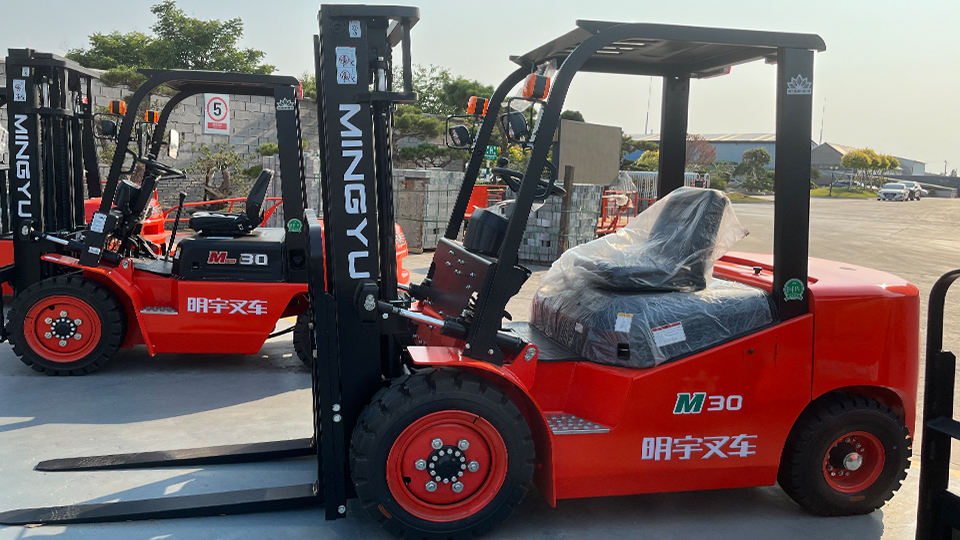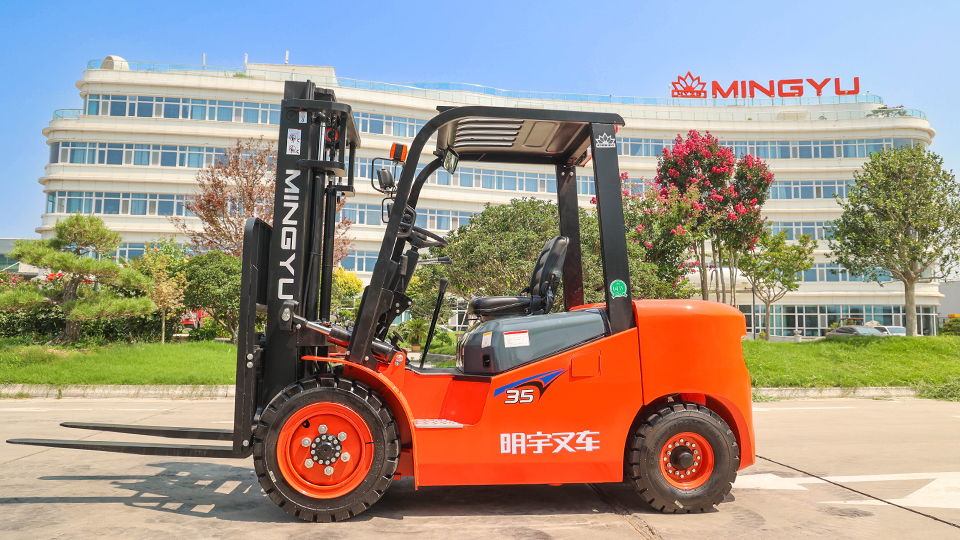
The Technical Roadmap to Certification: How to Get Forklift Certified in Florida
The state of Florida, with its expansive logistics network, bustling ports (Miami, Tampa, Jacksonville), vast agricultural operations, and burgeoning construction sector, relies heavily on the efficient and safe operation of powered industrial trucks (PITs)—commonly known as forklifts. The certification of forklift operators in Florida is not merely a job requirement; it is a Federal legal mandate designed to mitigate catastrophic workplace hazards, governed by the stringent regulations of the Occupational Safety and Health Administration (OSHA) under the standard 29 CFR 1910.178.
This technical article provides a comprehensive, structured guide to the multi-phase certification process, detailing the legal requirements, training methodology, documentation standards, and the crucial distinction between online training and final employer certification necessary for lawful operation in the Sunshine State.
I. The Regulatory Framework: OSHA 29 CFR 1910.178
The essential truth about "forklift certification in Florida" is that there is no separate, state-level licensing or certification issued by the State of Florida itself. The standard is federally defined and enforced by OSHA.

A. The Core Mandate
The OSHA standard 29 CFR 1910.178, specifically section (l), mandates that every employer must ensure that each of their forklift operators is competent to operate a powered industrial truck safely, as demonstrated by the successful completion of a comprehensive training program. This program is explicitly performance-oriented and must consist of three non-negotiable phases:
Formal Instruction: The theoretical, knowledge-based training.
Practical Training: Hands-on demonstration and supervised exercises.
Performance Evaluation: A formal assessment of the operator's competence in the workplace.
B. The Employer’s Responsibility: The Certification Authority
A critical distinction in the OSHA standard is that OSHA itself does not certify operators or training providers. Instead, the employer is the certifying authority.
The employer is legally responsible for certifying, in writing, that the employee has been trained and evaluated and is competent to operate a powered industrial truck safely.
This certification must be conducted by a "qualified person"—an individual who, by possession of a recognized degree, certificate, or professional standing, or who by extensive knowledge, training, and experience, has successfully demonstrated the ability to train and evaluate powered industrial truck operators.
C. Age and Eligibility Requirements
To operate a forklift in any commercial setting in Florida:
The operator must be at least 18 years of age. This is a federal requirement enforced by the Department of Labor, preventing minors from engaging in hazardous occupations.
There is no federal requirement for the operator to hold a state-issued driver's license. However, an individual employer may impose this as a company policy, particularly if the vehicle needs to be driven on public roads (which requires compliance with local traffic laws).
II. Phase One: Formal Instruction (Theoretical Knowledge)
The first phase is the knowledge component, often referred to as the "classroom" portion, which establishes the foundational principles of safe operation. This phase is most commonly satisfied through online courses or in-person lecture-style training programs offered by technical colleges or third-party safety providers throughout Florida.
A. Required Training Topics
The formal instruction component must cover a minimum curriculum specific to the different classes of powered industrial trucks (Classes I–VII) and includes, but is not limited to:
|
Category |
Key Topics Mandated by OSHA |
|
Vehicle-Related |
Operating instructions, warnings, and precautions; Controls and instrumentation location and function; Engine or motor operation; Steering and maneuvering; Visibility (including restrictions due to load); Fork and attachment capacity and stability characteristics; Vehicle inspection and maintenance requirements; Refueling/recharging procedures. |
|
Workplace-Related |
Floor condition and surface composition; Load characteristics (weight, load center, stability); Ramps and other sloped surfaces; Hazardous locations; Clearance under overhead installations; Pedestrian traffic; Narrow aisles and restricted areas; Operating time requirements. |
B. The Role of Online Training in Florida
Online training has become the preferred method for the formal instruction component due to its affordability and convenience.
Compliance: Reputable online courses are designed to be 100% compliant with the theoretical requirements of 29 CFR 1910.178(l).
Limitation: It is a critical technical failure to assume that an online certificate alone constitutes full "certification." The online course cannot replace the in-person practical training and evaluation mandated by OSHA.
Documentation: Upon passing the final written examination (typically requiring a score of 70% to 80%), the operator receives a printable certificate of completion. This document serves as proof of the formal instruction phase.
III. Phase Two: Practical Training and Evaluation (Performance)
This phase is where the operator is evaluated on their real-world ability to safely and competently operate the equipment. This must take place in person and on the actual equipment the employee will use.
A. Equipment and Site Specificity
OSHA mandates that training be site-specific and equipment-specific:
Equipment-Specific: If an operator is trained on a Class V Internal Combustion (IC) pneumatic tire forklift, that operator is not certified to immediately operate a Class II Narrow Aisle Reach Truck or a Class III Electric Pallet Jack. The operator must receive additional practical training and evaluation on the specific type of equipment.

Site-Specific: The practical training must occur in the actual work environment (or a simulated environment that mirrors the actual work conditions). This ensures the operator is aware of specific hazards, such as low-hanging pipes, blind intersections, dock plate operations, and high-pedestrian traffic areas unique to the Florida facility.
B. The Practical Evaluation Process
The "qualified person" (trainer/evaluator) observes the operator performing critical maneuvers and safety checks:
Pre-Shift Inspection: The operator must demonstrate a complete and correct pre-operational checklist (or "daily check") of the PIT.
Maneuvering: Safe travel with and without a load, handling turns, operating in tight spaces, and maintaining control on ramps and inclines (common in Florida’s warehouse and port facilities).
Load Handling: Demonstrating correct load pickup, centering the load, tilting the mast, stacking procedures, and confirming load stability, paying close attention to the load center and capacity plate.
Parking and Shut Down: Proper parking, mast lowering, key removal, and securing the brakes.
The evaluation is passed only when the operator can safely and competently perform all tasks without requiring intervention from the trainer.
IV. Documentation, Validity, and Renewal
Compliance in Florida, as with all OSHA-enforced states, is heavily dependent on maintaining meticulous and accurate records.
A. The Certification Record
The employer must maintain a written certification record for each trained and evaluated operator. This record must include:
Name of the Operator
Date of the Training (Completion of Formal and Practical phases)
Date of the Evaluation
Identity (Name) of the Person(s) Who Performed the Training and Evaluation
Signature of the Certifying Employer Representative
This documentation is the official proof of certification in the event of an OSHA inspection or post-accident investigation. The wallet card or certificate received by the operator is a convenient and portable document, but the employer's written record is the legal certification.
B. Validity and Recertification
Forklift certification in Florida is valid for a maximum period of three (3) years from the date of the successful performance evaluation.
Refresher training and re-evaluation are explicitly required under the following specific circumstances, even if the three-year period has not elapsed:
Unsafe Operation: The operator is observed operating the powered industrial truck in an unsafe manner.
Accident/Near-Miss: The operator is involved in an accident or a near-miss incident.
New Equipment/Conditions: The operator is assigned to operate a different type of truck (requiring equipment-specific training) or if the working conditions in the facility change (e.g., new racking system, different aisle layouts).
Evaluation Deficiency: The three-year performance evaluation reveals that the operator is not operating the truck safely.
V. Pathways to Certification in Florida
For an individual seeking certification, the route typically falls into two main categories:
A. Employer-Provided Training (The Standard Pathway)
For most employed individuals, the certification process is managed and paid for by the employer.
The employer may use an in-house qualified trainer to conduct both the formal and practical portions.
Alternatively, the employer may partner with a local Florida third-party training provider (e.g., a safety council, technical college, or specialized training company) to conduct the formal instruction and on-site practical evaluation.
B. Independent/Job-Seeker Training
Individuals seeking a forklift operator position in Florida often pursue independent training to enhance their resume.
Step 1: Online Coursework: Complete an OSHA-compliant online training course from a reputable provider ($50–$150). This provides the necessary proof of knowledge.
Step 2: Practical Experience (The Hurdle): The challenge for job seekers is obtaining the mandatory practical evaluation. Since the evaluation must be site-specific, it is highly recommended to clarify with a potential employer that the final hands-on evaluation will be completed during the on-boarding process after being hired. Some Florida technical colleges or safety academies offer combined programs (theory + practical) for a higher fee, which may include supervised driving practice and a generic evaluation on their training equipment.
VI. Conclusion: The Technical Compliance Imperative
To legally and safely operate a forklift in the State of Florida, an individual must navigate a specific, three-part technical process defined by Federal OSHA regulation 29 CFR 1910.178. The certification is not a passive certificate—it is an active demonstration of competence on the specific equipment, within the specific work environment.
For Florida employers, compliance is an imperative. Failure to properly certify and maintain records for operators exposes the business to significant regulatory fines (potentially tens of thousands of dollars per violation) and, more importantly, creates unacceptable risk to personnel and property. The ultimate definition of "certified" rests entirely on the employer’s written commitment that the operator has passed the knowledge test, received practical training, and successfully demonstrated safe operation during a formal performance evaluation.
Name: selena
Mobile:+86-13176910558
Tel:+86-0535-2090977
Whatsapp:8613181602336
Email:vip@mingyuforklift.com
Add:Xiaqiu Town, Laizhou, Yantai City, Shandong Province, China